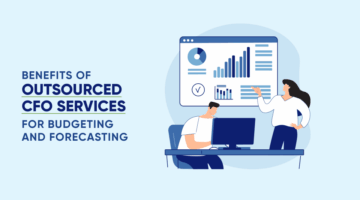A Day In The Life Of A CFO
Daily Responsibilities of CFO
The Chief Financial Officer (CFO) of a company is a major player in orchestrating the company’s success. In order to serve their company, there are a lot of tasks that need to get done each day. This means that almost every minute of a CFO’s day has to be accounted for in order to get everything done that the company needs. Get an inside peek at a day in the life of a CFO.
Job Duties of CFO
The CFO is responsible for every aspect of a company’s financial well being. This includes things like budgeting and overseeing accounts payable and receivable.
Another big part of the CFO’s job is forecasting. This includes forward-facing strategies for things like growth goals or big changes to the company’s brand. Things like adding a new service to the company’s service menu or changing suppliers for a major product component require the CFO to synthesize a cashflow forecast. A cashflow forecast anticipates the new change’s financial impact on the rest of the company. These forecasts are a major factor in the executive team’s decision making process.
The CFO usually works about 50 hours each week. If the company has divisions and departments in a wide range of time zones, this number may be larger. This is primarily to ensure that the divisions have access to the CFO’s range of knowledge for a large majority of their working business hours. They also work closely with the other members of the executive team to ensure a holistic approach to the company’s health and progress.
First Things First: A Typical Morning
When a CFO first arrives to work in the morning, they typically stick to the same basic list of to-do’s. They check their emails and respond to any pressing and important business. Then they review the numbers and data to ensure that the company is where it wants to be each morning. If they are not, the CFO strategizes what actions can be taken that day to get them back on the right track. These tasks usually take up the first hour of the day.
The next hour will usually be spent in daily check-in meetings. This includes one with the rest of the executive team and one with the accounting and finance department staff that reports directly to the CFO. In both meetings, the CFO will review the financial data and numbers from the morning and discuss how to act on them.
The rest of the morning typically includes things like approving accounts payable and commissions. This time will also be dedicated to addressing collection data and delinquent accounts. Any other financial data that needs attention, like tax or shareholder information may also get a time slot during the late morning.
Midday Task: A CFO’s Afternoon
The next part of the day usually starts with meetings with departments outside of the accounting and finance department. In these meetings, the CFO attends to any budgetary or financial concerns the other departments and their managers have. They may also chat about upcoming projects and financial goals looking forward.
Through the week, the CFO may also use this hour for meetings with other members of the executive team, like the Chief Executive Officer (CEO), the Chief Operating Officer (COO) or the vice presidents of other divisions. During these weekly meetings, the CFO often reports on things like financial data and the company’s progress toward financial goals. Each member of the executive team has an idea of how the company is progressing as a whole financially.
The CFO is responsible for conducting a monthly meeting with the executive team to go over budget reports. This includes the progress on the master budget, any new budgetary developments and data on the company’s cashflow. A larger iteration of these meetings also likely takes place quarterly and annually.
Winding Down: Closing Out the Day
After these meetings, the CFO will usually spend the rest of the afternoon revisiting many of the tasks they carried out that morning. This includes checking and answering emails, returning any calls received during the day and taking questions from other department heads or executive team members.
They will also use this time to address any issues and concerns raised in the meetings earlier in the day. This may include one-on-one problem solving sessions with the department head.
They will look at their upcoming goals and follow up with the finance department on the status of these goals.
The CFO of a company spends a lot of their time working closely with other employees and departments. This is to ensure that each division of the company’s needs are being met. They are busy members of the executive team. Nearly every minute of the day dedicated to the company’s financial well being. They spend their time ensuring that the company has the means to achieve its goals and continue to grow and succeed.
Get Your Free Consultation
Gain Financial Visibility Into Your Business
We provide outsourced CFO, fractional CFO, and temporary CFO, Controller, Audit Preparation and operational Accounting services that suit the needs of your business.
- Hourly Rates
- No Hidden Fees
- No Long Term Requirements
NOW CFO provides the highest level of expertise in finance and operational accounting to accelerate results and achieve strategic objectives for sustainable growth and success.
After completing the form, a NOW CFO Account Executive will reach out and learn more about your needs so that we can pair you with the right Partner.
Learn More: The Role of an Interim CFO in Your Business



